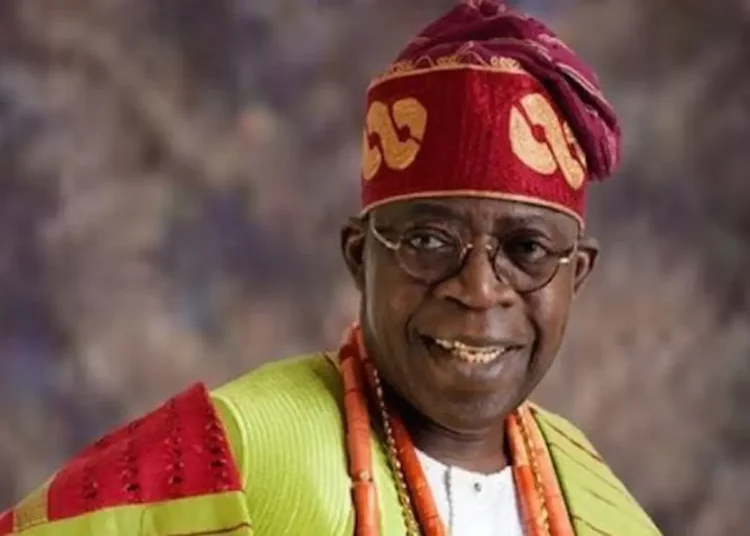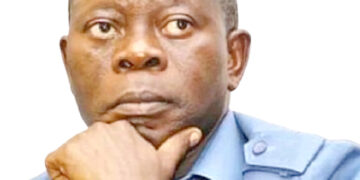Politicking and the electioneering process leading to the 2023 General Elections has certainly reached fever pitch. Across social and traditional media, as well as the length and breadth of the country, political posters and billboards are quite conspicuous, haphazardly adorning landmark areas of cities, towns as well as the hinterlands. Nigerians have also been trooping out enmasse during political rallies and like peddlers showcasing their wares to prospective customers, some of the candidates have been literally seducing the electorate into voting for them come Election Day.
The Presidential Candidate of the All Progressives Congress (APC) is set to kick off his campaign in his march to Aso Villa come 2023. Last month, Asiwaju Bola Ahmed Tinubu released an 80-page action plan that highlights an eight-point agenda. The policy document christened “Renewed Hope 2023 – Action Plan for a Better Nigeria” prioritizes lists of action plans that include national security, economy, agriculture, power, oil and gas, transportation and education. Other areas are healthcare, digital economy, women empowerment, judicial reform, federalism/decentralization of power and foreign policy.
While some politicians have unsurprisingly criticized the action plan stating it was a duplication of M.K.O’s Abiola’s “Hope 93” manifesto, a quick perusal of both documents reveals that this is grossly untrue. As usual politicians with ulterior motives have been peddling this lie to unsuspecting Nigerians to apparently score political points. Unlike the Hope 93 manifesto that has since been overtaken by events, one can categorically state that Asiwaju’s Hope Renewal document is unique in its own right and seeks to address contemporary challenges the country is facing.
A critical look at Hope Renewed, the first item is on National Security and rightly so. The importance of security in a nation cannot be overemphasized and Bola Ahmed Tinubu in recognition of this has made several provisions to mitigate the security challenge across the country. Asiwaju promised to establish a highly trained and disciplined anti-terrorist squad to tackle insecurity. This of course will be a master stroke. A dedicated highly trained team such as the Special Weapons and Tactics (S.W.A.T) unit in the U.S. will go a long way in curbing terrorist activities across the country.
The Nigerian Police Force will also be repositioned to deliver on its primary duties of community policing and maintaining law and order through crime fighting and prevention. He also stated in the document that Military units will be better equipped with tactical communications gear and new vehicles to give them a greater communications and mobility advantage over criminals, bandits and terrorists. A key provision is the adoption and deployment of modern technologies, tools and equipment. For those still in doubt, technology is the way to go.
The second item on the list is the Economy. Hope Renewed aptly recognizes the challenges of our economy when it stated that the economy is largely oil and import dependent. It hopes to mitigate this challenge by engaging in more home-grown production – produce more and import less is key to improving the economic. He also promised going back to agriculture which erstwhile was the backbone of our economy. It however indicated adopting modern approaches to agriculture rather than the rudimentary system that we’ve always practiced.
On the foreign exchange rate crisis, we are undoubtedly tied to an ineffective regime of multiple, somewhat arbitrary, exchange rates. This situation gives rise to financial dislocation, currency speculation and arbitrage. Bola Ahmed Tinubu promises to work with the Central Bank and the financial sector to carefully review and better optimize the exchange rate regime. Also, the action plan rightly recognizes that diminished levels of oil production and the relatively low capacity of the country’s manufacturing sector have put pressure on the Naira. Bola Ahmed Tinubu promises that his economic policies shall be guided by the desire for a stronger, more stable Naira founded upon a vibrant and productive real economy.
The third major item in the action plan is on the oil and gas sector. We know how vital and contentious this sector is in terms of revenue generation for the country. Bola Ahmed Tinubu has promised to phase out the controversial fuel subsidies and increase oil production towards further sanitizing the sector. Surely through this, funds will be better utilized to address urgent social and economic needs such as infrastructural, agricultural and social welfare programmes ranging from road construction to boreholes, public transportation subsidies, and education and healthcare funding programmes.
Aside from phasing out fuel subsidy, Asiwaju has promised to accelerate the full implementation of the Petroleum Industry Act (PIA) as well as implement additional favorable policies to attract investment in deep water assets within six months. He further recognizes that subsidy and deregulation are only part of the solution. Rehabilitation of the nation’s refineries via a possible joint venture partnership arrangement will be adopted. Now this is in accordance with international best practices and it will go a long way in further sanitizing the sector.
A particular item in the action plan is women empowerment. If Nigeria must develop as a nation and stand toe to toe with other nations around the world, its ratings on women inclusiveness and empowerment must be top of the charts. A Tinubu-led government promises social inclusion and the much-needed political empowerment by seeking legislative backing. The goal is to “increase women’s participation in government to at least 35 percent of all governmental positions.” With this as well as economic empowerment for women, Nigeria shall surely surpass the likes of Rwanda in the near future with more female representation and participation in political governance.
According to Malcom X, the popular African- American human rights activist, “education is the passport to the future, for tomorrow belongs to those who prepare for it today.” Perhaps this was at the back of Asiwaju’s mind when he promised to “treat education as a natural and constitutional right for all Nigerians” as it should be. He states that tertiary institutions will be reformed and more attention will be paid to Science, Technology, Engineering and Math (S.T.E.M). Around the world, this is one of the accepted best practices and Nigerian students certainly deserve such.
Another key provision is on quality technical and vocational education. Across Nigeria, technical and vocational training have greatly waned. Many students are exposed to theoretical practices and hypothesis rather than practical activities. Technical and vocational education will help young Nigerians acquire skills as well as scientific knowledge. It will help them prepare for different programs like agricultural industry, commerce, fashion designing among others.
Recently also, much ado has been said about the mandatory National Youth Service Corps (NYSC) programme. There are those who are calling for scraping it while some contend with reforming it. Staying true to the aim of its establishment in the promotion of national unity and integration, Asiwaju has chosen to toe the line of those calling for reforms. He promised to strengthen the NYSC scheme towards enabling Nigerian youths acquire the spirit of self-reliance by encouraging them to develop skills for self-employment.
Many across the country have always contented that the center holds too much power to the detriment of other tiers of government. Asiwaju recognizes this and through constitutional review and review of resource allocation, aims to decentralize power such that states and local government are afforded autonomy and resources needed to better serve Nigerians. These tiers of government are closer to the people; hence they can properly alleviate the needs of the people.
The recently concluded Sao Tome and Principe elections saw the adoption of Diaspora voting. In many parts of the world, Diaspora voting has become a mainstay. For a while now, Nigerians in Diaspora have been clamoring for this on the basis of the huge annual economic and financial contributions to the country. Perhaps this might just be a reality in a Tinubu administration as he has promised to work with the National Assembly to allow greater Diaspora representation and participation “in all aspects of the democratic process.”
Another key foreign policy objective is establishing a G-5 among major African nations in order to develop common positions on issues of continental and global importance. This will certainly enhance Nigeria’s political leadership on the continent, accord us ‘’defender status” and megaphone for the African continent among the comity of nations. It would certainly put us on the pedestal of clinching African representation of the much-coveted permanent membership seat in a reformed and expanded Security Council of the United Nations.
With an iron clad action plan in hand, the die is cast and the road to the presidency is becoming even more clearer for the ‘City boy who would be King!’ As the cards continue to fall in his favour, it seems that only The Almighty can stop Asiwaju Bola Ahmed Tinubu’s ascent to the presidency at this point.
“Over to you Your Excellency Sir…, on your marks, get set, go!”





